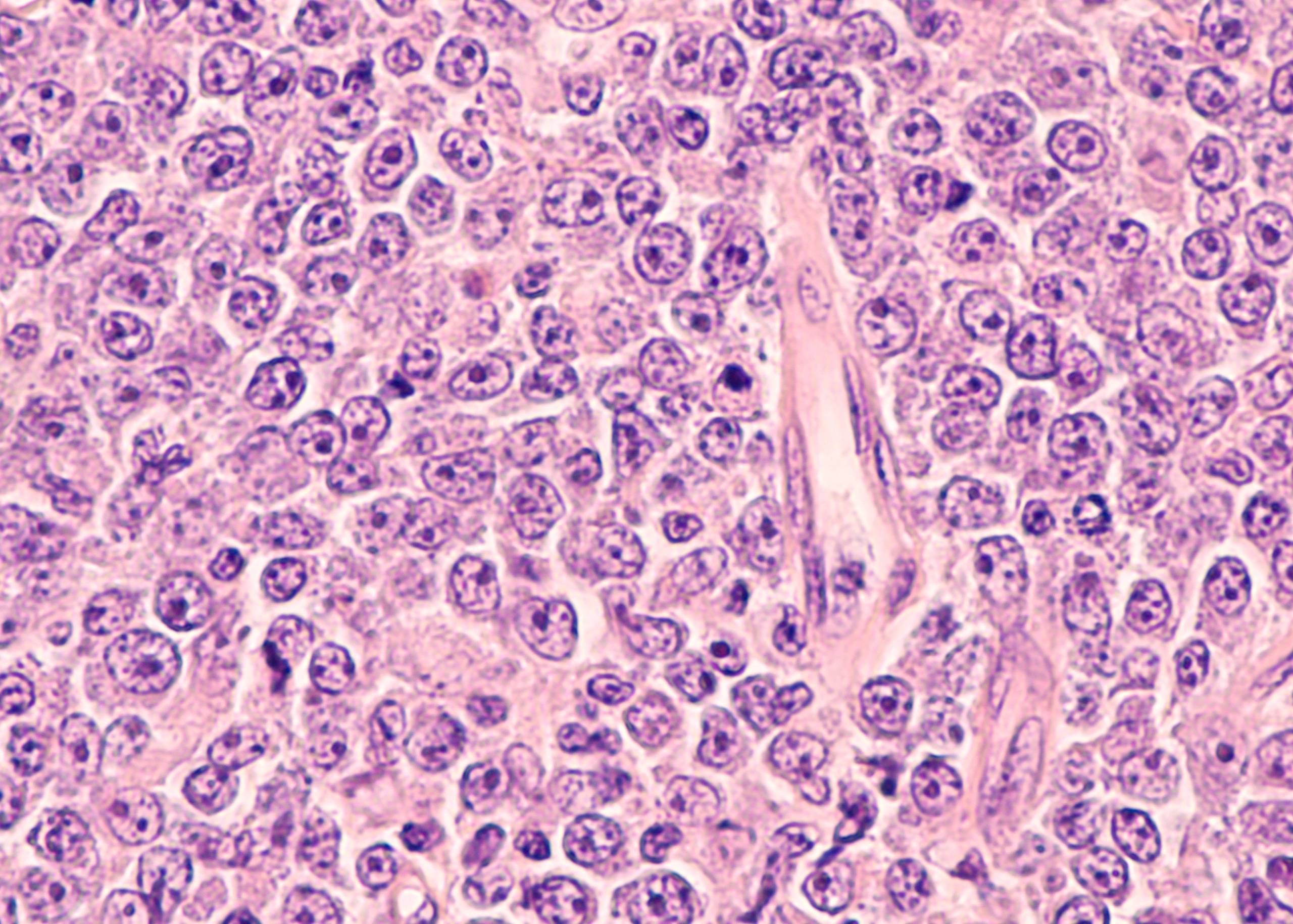Lymphoma is a cancer of the lymphatic system, which consists of a network of vessels, organs, and glands throughout your body. Lymphomas are classified by the type of cell from which they develop.
The lymphatic system helps to protect humans from disease by carrying away waste products and foreign substances from the body. The lymphatic system includes the bone marrow, spleen, thymus gland, tonsils, adenoids, mucous membranes in the nose and throat, lymph nodes, and other tissues.
Lymphocytes (white blood cells) are produced in the bone marrow and travel through the bloodstream to reach other parts of the body. Lymphomas are cancers that begin in B-cells (white blood cells) or T-cells (a type of white blood cell). In general terms, lymphomas involve abnormal growths called tumors that start in one part of the body but spread to other parts through the lymphatic system or blood stream.
What are the Types of Lymphoma?
There are two main types of lymphoma: Hodgkin’s and non-Hodgkin’s.
Hodgkin’s lymphoma is cancer that starts in white blood cells called lymphocytes. It can occur anywhere in the body, but it most commonly appears in the lymph nodes located throughout the body.
Non-Hodgkin’s lymphoma (NHL) is another form of cancer that starts in lymphocytes. However, non-Hodgkin’s lymphoma does not usually start in the lymph nodes like Hodgkin’s does and can affect any part of the body.
Other types of lymphomas include chronic lymphocytic leukemia (CLL), mantle cell lymphoma (MCL), and small-cell carcinoma of the lung.
What are the Symptoms of Lymphoma?
Symptoms of lymphoma can develop slowly over time or they can appear suddenly. The most common symptoms are:
- coughing up blood
- pain in the abdomen or chest
- loss of appetite and weight loss
- feeling very tired all the time (feeling like you have the flu)
- night sweats (waking up sweating at night)
What are the Causes of Lymphoma?
The causes of lymphoma are not well understood. Some lymphomas have an inherited genetic component, but most do not. Most cases of lymphoma occur in people who don’t have any known risk factors.
What are the Risk Factors of Lymphoma?
Some people are at higher risk for lymphoma than others. Risk factors include
Age: The risk of developing lymphoma increases as you get older.
Gender: Men are more likely to develop lymphoma than women.
Genetics: Certain genes can increase your risk of developing certain types of lymphoma (such as chronic lymphocytic leukemia).
Exposure to certain chemicals or radiation: People exposed to certain chemicals or radiation may be at higher risk for developing certain types of lymphoma (such as hairy cell leukemia).
How is it Diagnosed?
Tests and procedures used to diagnose the condition include:
Lymph node biopsy. A pathologist examines a sample of tissue from a lymph node for signs of cancerous cells.
Blood tests. These tests can detect abnormal white blood cell counts, which are often high in people with lymphoma.
CT scans or MRI scans. These imaging tests can help doctors see if there’s any tumor tissue in the spleen or other organs outside the lymph nodes or bone marrow.
Bone marrow aspiration/biopsy (called a marrow test). This test involves removing a small amount of bone marrow through a needle and examining it under a microscope for signs of cancerous cells.
How is it Treated?
Chemotherapy: This is the use of drugs to kill cancer cells. The drugs enter the bloodstream and travel through the body to reach cancer cells that have spread to other parts of the body. These drugs are not selective, meaning they will affect normal cells as well as cancer cells, which can cause side effects such as nausea, hair loss, and fatigue.
Stem cell Transplantation: This procedure replaces diseased bone marrow with healthy cells from a donor who has been matched for tissue type (e.g., blood type) and gender. Transplants are usually done when the patient has exhausted other treatment options, or their disease progresses rapidly.
Targeted Therapy: Targeted therapies take a more personalized approach to treating cancer by targeting specific areas within a tumor or oncogene (a genetic mutation that triggers uncontrolled cell growth). These therapies are used in combination with traditional chemotherapy drugs to increase effectiveness for some cancers such as lymphoma, leukemia, or multiple myeloma.
Hematologists and Bone Marrow Transplanation experts at Burjeel Medical City, Abu Dhabi, treat lymphoma and other blood disorders.




























